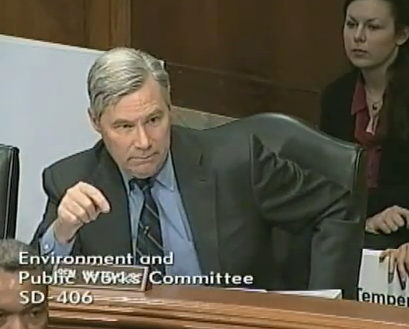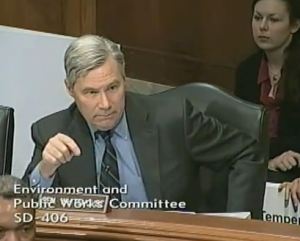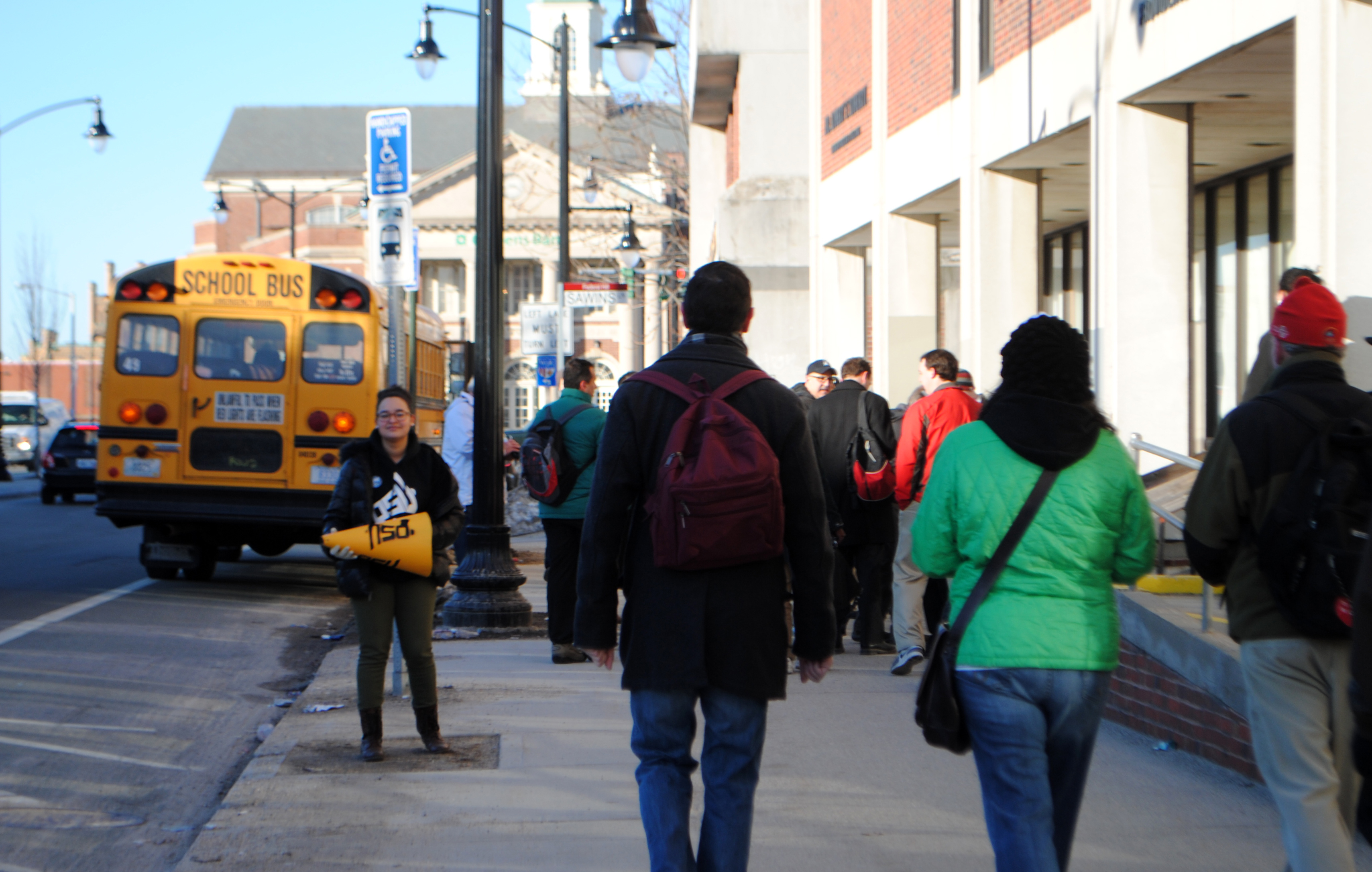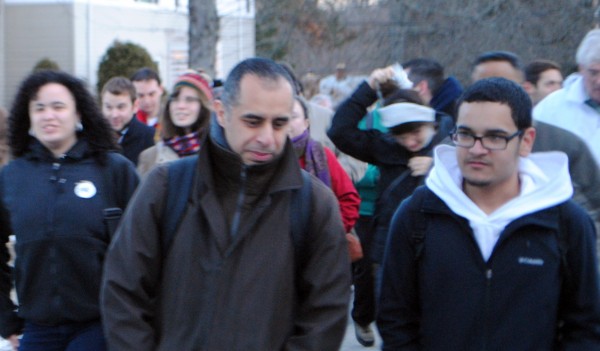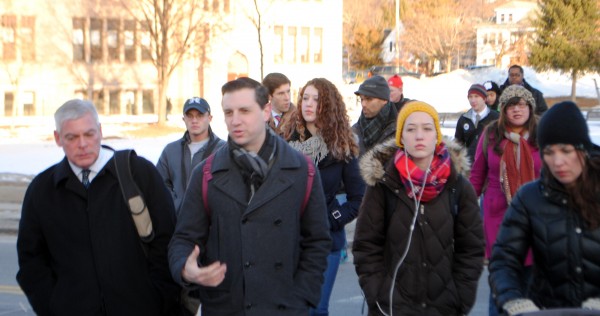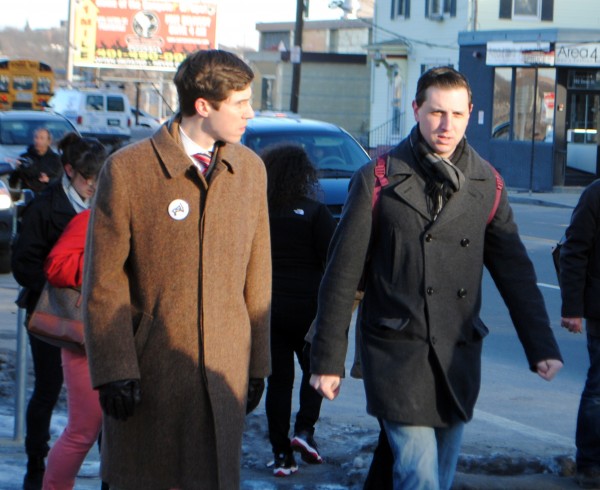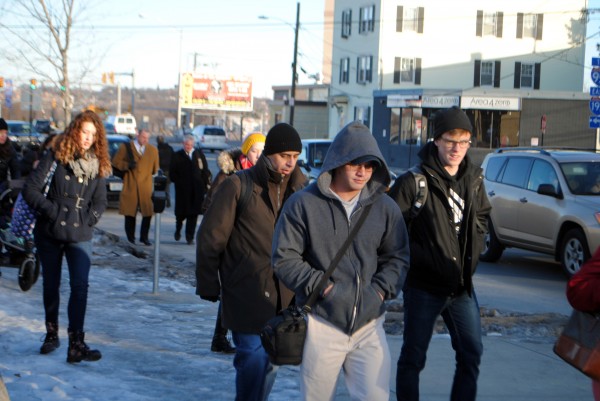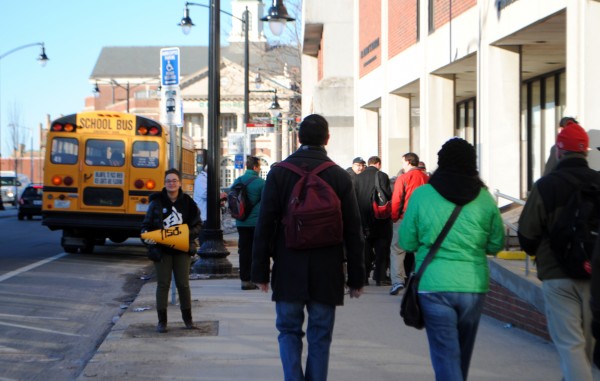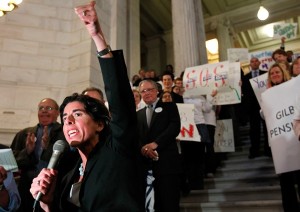
A recently released Brookings Institution blueprint on how to cut public pension plans offered this advice: “having a Democrat lead the effort goes a long way towards countering the charge that reforms are merely a conservative attack on labor.”
Shortly thereafter Gina Raimondo – the living, breathing (and campaigning!) prototype for the Brown Center at Brookings’ wisdom – sent out a fundraising email bragging about the accolade. But instead of just tooting her own horn, she also slipped in a not-insignificant exaggeration about the think tank report.
“Just the other day, a progressive think-tank heralded Gina’s leadership on solving the pension crisis as a national model,” wrote her campaign manager Eric Hyers.
Brookings is not a progressive think tank. It doesn’t pretend to be, and isn’t regarded as such.
Neil Lewis, a veteran New York Times reporter, described Brookings as being “liberal-centrist.” And the progressive blog FireDogLake was :
“The Brookings Institute was once a bastion of liberal thought … Now, though, it has become the Alan Colmes of think-tanks, fake liberals who meekly accept conservative mythology on every major point, but says we should at least think of the misery we are causing.”
And the Center for Media and Democracy, the even farther left-leaning think tank that mainly goes after ALEC and other Koch brother initiatives, had a similar take on Brookings. Its wiki SourceWatch.org described Brookings history as America’s oldest think tank.
Initially centrist, the Institution took its first step rightwards during the depression, in response to the New Deal. In the 1960s, it was linked to the conservative wing of the Democratic party, backing Keynsian economics. From the mid-70s it cemented a close relationship with the Republican party. Since the 1990s it has taken steps further towards the right in parallel with the increasing influence of right-wing think tanks such as the Heritage Foundation.
Brookings, according to SourceWatch, gets major funding from conservative interests.
I asked on Twitter how people would describe Brookings, and here are some of the responses I got:
@bobplain Center-left
— John Perilli (@JohnPerilli) February 27, 2014
and
Dead center RT@bobplain: If you were to describe where @BrookingsInst is on the political spectrum, how would you describe? — Jeff Levy (@jefflevy) February 27, 2014
When I asked if anyone thought Brookings was a progressive think tank, responses ranged from:
@bobplain no, just a tad left of center. — Jason Becker (@jasonpbecker) February 27, 2014
to:
@bobplain@BrookingsInst Ha, ha, ha! What do you mean, during the sixties hippie craze? It helped when they had a left flank. — Karina Lutz (@KarinaLutz) February 27, 2014
.
Why does Gina Raimondo hold such a minority opinion about Brookings? I sent an email to Hyers yesterday and he did not respond yet. So I will offer my theory:
It’s a time-tested political tradition in Rhode Island to claim to be somewhere to the left of one’s actual politics. It’s why the General Assembly is dominated by one political party but not one political ideology. It probably has something to do with why Barrington millionaire Ken Block launched his political career as a “Moderate.” And it’s probably why Justin Katz, who I think is the most unabashedly conservative voice in Rhode Island, thought to tweet this earlier this week:
@bobplain That’s where you’ve got the political spectrum mixed up. I’m really not that far right, by any objective measure.
— Justin Katz (@JustinKatzRI) February 27, 2014
I was surprised Katz wasn’t proud to claim the mantle of most conservative person in Rhode Island.
And then I remembered that Gina Raimondo rebranded herself as a progressive to run for governor. And how many conservatives in the state legislature have confessed privately that they run as Democrats because it is the easiest way to win an election. And how often conservative pundits blame our economic problems on 60 years of Democrats in power rather than the largely right-wing agenda the current crop of ruling Democrats at the State House have implemented during the past decade (tax cuts for the rich, shrink government and austerity for social services).
And in the future, I’ll recall how the Brookings Institution is advising the world – using Rhode Island as its example – that “having a Democrat lead the effort goes a long way towards countering the charge that reforms are merely a conservative attack.” And that those are the types of organizations that Gina Raimondo would describe as being progressive.
For an actual progressives take on pension politics, read Sam Bell’s post on what Massachusetts Senator Elizabeth Warren said about pension cuts and wealth transfers to hedge fund managers.










